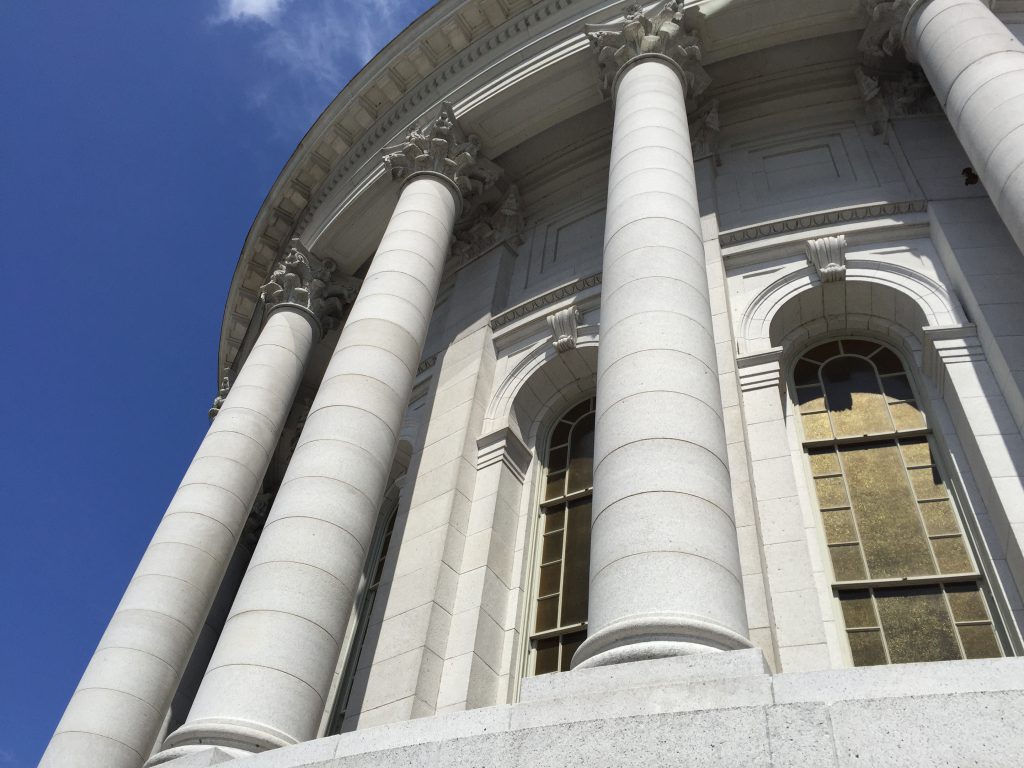Despite Past Controversy, 2023 Black History Month Resolution Finds Bipartisan Support
In 2019, Republicans objected to a resolution honoring Milwaukee native Colin Kaepernick.
State lawmakers are moving forward with a resolution to honor Black History Month, a move that has drawn controversy recently but this year has bipartisan support.
While the Legislature frequently passes resolutions without fanfare, Republicans who run the state Assembly and Senate have not passed the Black History Month resolution endorsed by the Legislative Black Caucus for the past several years. The declaration typically honors prominent Black Wisconsinites, but in 2019, Republicans objected to a resolution honoring Colin Kaepernick, the Milwaukee-born athlete and former NFL quarterback who became known for his outspoken stand against police violence.
This year’s resolution recognizes February as Black History Month and “extends appreciation” to seven Black Wisconsinites, both living and deceased, “for their contributions to the state of Wisconsin, the country, and their fellow citizens.” Kaepernick is not included.
Still, it’s unclear whether the resolution will be brought to the floor, said Rep. Dora Drake, D-Milwaukee, the chair of the Wisconsin Legislative Black Caucus.
“It’s a new session, and we’re obviously hoping that there might be some movement, but as a caucus, we do not believe in having our names policed by colleagues of ours,” she told Wisconsin Public Radio.
This year, three Assembly Republicans have since signed on as cosponsors: Rep. Scott Allen, R-Waukesha; Rep. Dave Murphy, R-Greenville; and Rep. Ron Tusler, R-Harrison. They join all 35 Assembly Democrats and nine members of the State Senate, according to figures shared by Drake.
Sen. Lena Taylor, a Democrat of Milwaukee and member of the Legislative Black Caucus, did not sign on. Speaking to Wisconsin Public Radio, she said past controversies around the annual resolution — and media attention about what has become an annual legislative tussle — steals focus from programming that the Caucus has planned throughout the month of February.
“I chose not to be part of a circus process again,” Taylor said, adding that pushback on the resolution indicates disrespect for the Black Caucus in particular.
“What should be the news are the great people that should be recognized for their contributions, as African Americans, and I don’t believe that my colleagues should be policing that,” she said.
GOP leaders did not immediately respond to requests for comment on the resolution, or questions about whether they will move it to the floor for a vote.
The Black History Month resolution, which was once passed regularly with little ado, has in recent years become a locus for conflict. That began four years ago, when Black lawmakers included Kaepernick as one famous figure with local ties worth celebrating.
Kaepernick, who played six seasons in the NFL, came to prominence for his “take a knee” movement, protesting racial injustice and police violence. Many conservatives, including former President Donald Trump, took issue with the movement, and Wisconsin Republicans in 2019 refused to pass the resolution with Kaepernick’s name attached and voted to have it removed despite pushback from Black lawmakers.
The following year, in 2020, Allen, who is white, proposed his own resolution including several white people for commemoration alongside the Black people proposed by the Legislative Black Caucus. That draft received a sharp public rebuke from Taylor, and Allen later withdrew the resolution.
This year’s resolution includes Paul Higginbotham, the first African-American judge to serve on the Wisconsin Court of Appeals, Marcia Anderson, a Beloit native who became the first African-American woman to become a major general in the United States Army Reserve, and Alonzo Robinson, Jr., Wisconsin’s first Black registered architect, along with community advocates and entrepreneurs.
“There was no intentionality” when it came to trying to avoid controversy this year, Drake said. Rather, caucus members chose people who have contributed to Wisconsin and American history.
“The people that we’ve put forth … have made great contributions to what it means for our own history,” she said. “Now, if that’s seen as controversial, then I think that’s concerning as to the parts of history that maybe people are uncomfortable with.”
Listen to the WPR report here.
After controversy, Black History Month resolution moves forward with some bipartisan support was originally published by Wisconsin Public Radio.






















